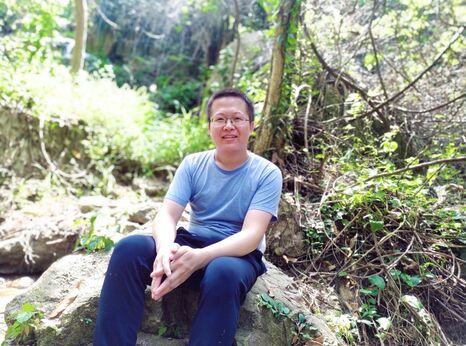Covid-19 activist faces five years in prison

After Chen Mei had been missing for 54 days, his family finally received a call on 12 June from Chaoyang District police station in Beijing. Police informed Chen’s family that he was being detained at Chaoyang Detention Centre under the criminal charge of “picking quarrels and provoking trouble”, which carries a maximum sentence of five years’ imprisonment. During the same call, Chen Mei’s family was told that he had voluntarily applied for free legal aid and that the appointed lawyers might contact them. Chen’s mother told the person on the phone that they did not need a legal-aid lawyer because the family had already appointed a lawyer for Chen after he was arrested in April 2020. However, the person asked her to respect Chen’s decision.
One of the legal-aid lawyers contacted the family on 15 June. Chen’s family reiterated that their services were not needed, as they had already arranged a lawyer for Chen. However, the lawyers refused to withdraw from Chen’s case. It was only after Chen’s family made a public announcement, stating that the legal-aid lawyers were not needed, that the lawyers finally withdraw from the case on 24 June 2020.
The very next day on 25 June, however, two new lawyers from legal aid contacted Chen’s mother about Chen’s case. Since then, the family continues to reiterate publicly that they wish Chen Mei to be represented by the lawyer they appointed for him. Both lawyers refused to withdraw from Chen’s case. According Chen’s family, the new legal aid lawyers only met with Chen Mei once when Chen Mei signed the documents to appoint them as his lawyers. The legal aid lawyers told the family that they were unable to meet Chen Mei due to COVID-19 regulations. However, the family later found that this is not the case.
As with Chen Mei, Cai Wei’s family members were also told that Cai had applied for free legal service and that two lawyers had been appointed over objections from Cai’s family.
Chen and Cai were involved with Terminus2049 (端点星计划), an online project working to archive articles that have been removed from mainstream media outlets and social media by state censorship, including many related to COVID-19. After the outbreak of the COVID-19 pandemic in China, numerous articles relating to the virus were censored, including ones published by mainstream media organizations such as a subsidiary of Beijing Youth Daily and Caijing. Certain social media posts, sensitive hashtags and demands for free speech have all been quickly deleted or censored.
There have been many reports of independent journalists and activists having been harassed by authorities for sharing information about COVID-19 on social media. These include outspoken lawyer and citizen journalist Chen Qiushi, who reported being harassed by the authorities after posting footage from hospitals in Wuhan, and Wuhan resident Fang Bin, who was briefly taken away by the authorities in February 2020 after posting a video purporting to show corpses of COVID-19 victims.
The crime of “picking quarrels and provoking trouble” (寻衅滋事) under Article 293 of the Chinese Criminal Law is a broadly defined and vaguely worded offence that has increasingly been used to target activists and human rights defenders. Although the crime originally applied to acts that disrupted order in public places, since 2013 the scope has expanded to include online space as well.